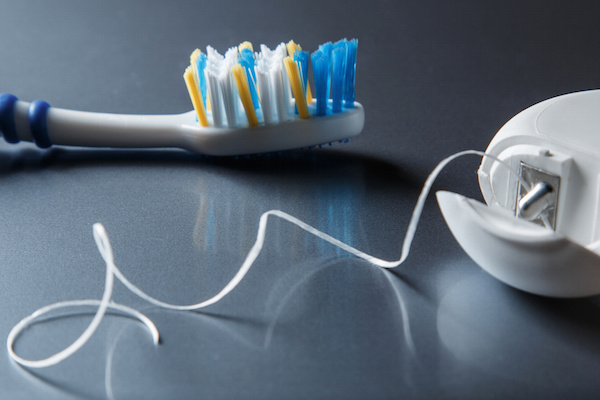
Flossing Is Not a Waste Of Time
In the past few weeks, dental news has broken and gone viral. Flossing has been deleted from the latest American Dietary Guidelines published by the Department of Agriculture and Health and Human Services. This news has caused many publications to state that flossing is a waste of time and money. As a dentist, this spin on the news is very troubling. There is much more to the story than meets the eye, and even though flossing isn’t the most exciting thing you do every day, it is still important.
Why Was Flossing Dropped From the Guidelines?
For decades the importance of daily flossing has been has been touted by dentists of all types. General dentists, orthodontists, periodontists, and all the others have urged their patients to take two minutes every night to floss in between their teeth to remove decay and inflammation causing bacteria. This recommendation has been officially dropped because the current evidence that flossing actually prevents cavities and periodontal disease is incomplete. That is to say there are currently no studies that have researched randomized trials and proved flossing prevents tooth decay.This is extremely surprising, knowing that with all the amazing gains made in dental and medical technology that not one study has been able to prove that floss does not prevent cavities.
Before you decide to forego floss forever, understand that researchers muse that perhaps the reason no trials have been researched on this topic is because it is so hard to get people to floss in the first place. Because unreliable evidence is not truly evidence, it’s not right for the Department of Agriculture and Health and Human Services to include flossing as a preventative measure to the American people.
Despite this fact, there is evidence that found flossing, when done correctly and consistently can improve oral health. The aforementioned study was conducted by dental professionals. When they flossed the teeth of children Monday through Friday for two years, they found a 40 percent reduction in cavity risk. That is certainly telling. Perhaps it is not flossing that does not prevent cavities and gum disease but the way you floss?
Another very important factor to consider when understanding that flossing is indeed important to oral health is that it is the only way to remove bacteria from your gumline. A toothbrush cannot reach in between the teeth, so floss is the only other way. Bacteria in the gums leads to inflammation. After a while, gum inflammation leads to gingivitis and can be cured, however if left unchecked by not flossing or seeing a dental professional for cleaning, in five to 20 years, it can cause periodontal disease. And, periodontal disease causes bone and tooth loss. While researchers cannot say for certain that flossing prevents periodontal disease, they can say that it helps prevent bacteria from sitting on the gums and causing inflammation. They cannot make the leap without evidence, but we can certainly see where the train is going.
How To Floss Correctly
Knowing that flossing correctly can help prevent cavities, and understanding that it can prevent gum inflammation is more that enough reason to learn how to floss correctly. Flossing correctly does take time, but it’s well worth the effort. You want to wrap the length floss around your middle fingers until you have just enough space to move the floss in and out of your mouth. Use your index fingers and thumbs to hold and guide the floss. Take the floss and slide it between your teeth. Take it up to the gum line and hug the neck of the tooth. You’ll want to move the floss as high up as possible under the gum line. This action will remove the bacteria where you need it gone most. After you have repeated this action on both sides of every tooth follow up with brushing or a mouth rinse to remove the bacteria you’ve unsettled. Flossing isn’t the most exciting thing you’ll do everyday, but it is still very important for impeccable oral health.
If you would like help learning how to floss correctly let us know at your appointment. We are more than happy to help you perfect your technique so you know you are flossing correctly and with purpose every time. While the scientific evidence isn’t where it should be, we can still see that flossing correctly every day is extremely important.

